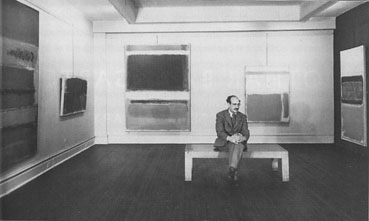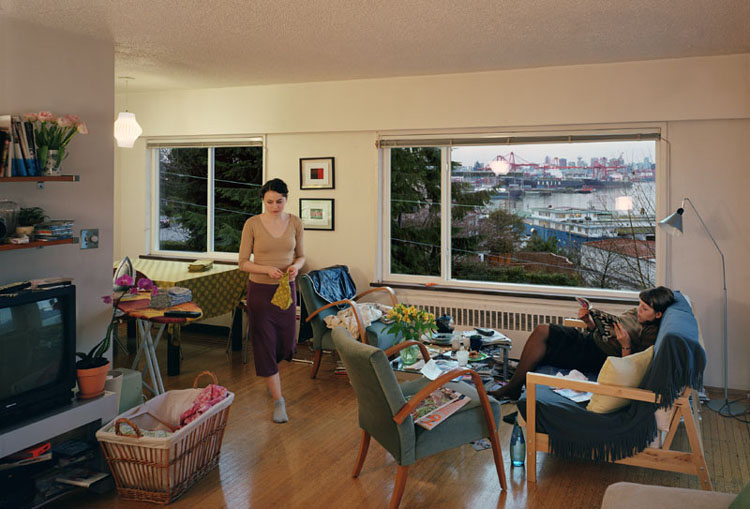

 |
 |
| Mark Rothko, Robert Mann Gallery, 1949, Aaron Siskind Foundation | Jeff Wall, A View From an Apartment, 2004-05 |
Course Description
In 1984, the American philosopher Arthur Danto declared that art and its history had come to an end. Others jumped on the bandwagon declaring the death of modernism, narrative, and even history itself. In the wake of the unprecedented period of artistic production and criticism in the U.S. after the Second World War, which included Abstract Expressionism, Pop Art, the critical writings of Clement Greenberg, Rosalind Krauss, and Michael Fried, and the "postmodern" critiques of the late '60s and '70s, there seemed to be no guiding principles. From now on, Danto claimed, anything could be a work of art.
In this course, we critically examine post-war visual culture with particular emphasis on the transition from "late modern" to "contemporary" art. Through careful study of the artists, philosophers, and critics whose work has shaped the present discourse, we assess the meaning and implications of Danto’s thesis and consider the prospects for constructing radically new ways of understanding and experiencing visual culture "after the end of art”. Our approach will be interdisciplinary, interactive, and collaborative.